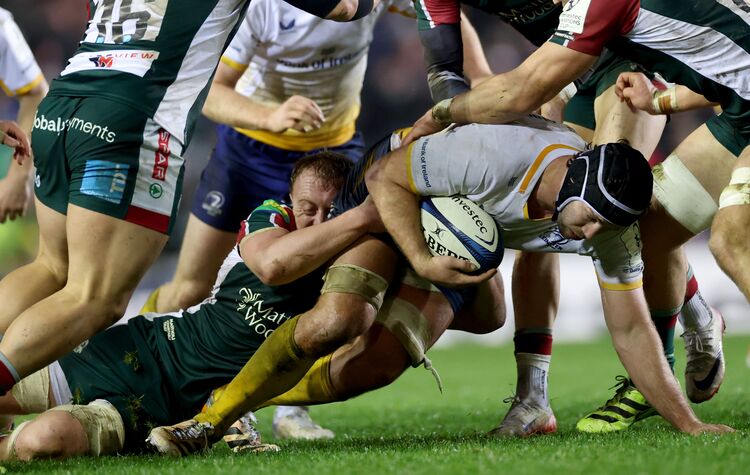By Larry Kirwan
So, the Pecker Dunne finally bit the dust. Must have been one hell of an ailment that laid him low, for neither wind, rain, rough living, or a rake of alcohol made much dent in him in his heyday.
Though born in a tinker's caravan outside Castlebar we always considered Paddy Dunne one of our own. Perhaps, it was because so many traveling families hailed from Wexford but our town was more welcoming to Pavees than most; and yet, in his classic song, Wexford Town, Pecker wasn't shy about identifying the veiled local hostility he experienced.
I can still recall the cut of him as he stood outside the L&N Stores on South Main Street, banjo slung over his broad shoulders, eyes flashing, voice plaintive or harsh depending on the song, but never acknowledging the coppers or silver that we tossed in his busker's cap.
Pecker had a rare air of danger about him and Wexford people knew better than to stare, or expect thanks.
I once followed him up Corn Market into Kielty's bar, one of the few pubs that served drink to travelers.
He stood apart, eyes locked on the top shelf bottles. Though he was invariably courteous, there was a remoteness to the man: you could tell he had little problem enjoying his own company.
I never spoke to him although we were on nodding terms. In truth, I was awestruck for he had written "Sullivan's John," a song to die for. It tells of a man who leaves his father's farm and goes off "with the tinker's daughter far along the road to roam." Unlike "Raggle-Taggle Gypsy" and other merry romps, it gives a much starker account of the consequences of such behavior - and from the Pavee perspective.
There are people who say that Pecker never wrote the song - just as there are those who pronounce that Shakespeare was too lowborn to have written his great plays. But someone constructed this masterpiece, so why not a traveling man who knew more about the ways of the road than any academic or "buffer" (Pavee word for settled person).
Pecker hailed from the "hidden Ireland" as Daniel Corkery called it. You could still experience that universe when I was a boy. It was in the air at country fairs and point-to-points where hucksters hawked their wares, and you could sense it in the songs of buskers like Maggie Barry who entertained outside GAA grounds on big match days.
Pecker was a man apart even in that world because of his wild looks and the chip he wore so brazenly on his shoulder. John Huston latched on to that immediately and cast him in "Sinful Davy." He knew Paddy Dunne was his own man and his powerful essence would light up the screen.
Though he had the look of a Mexican revolutionary, yet, when he played the banjo, his music reeked of the Irish countryside. His voice, a powerful instrument, spoke of a different time far removed from the lace-curtain gentility of small towns or Grafton Street posturing.
He was the toast of folk-singing Dublin for a while and looked like he was on his way, as they say, but while he appreciated the easy money, he wasn't someone who could be trusted to say the right thing. There was always that otherness to him. I suppose deep down he didn't care to place his trust in those who weren't from his background.
Sinatra used to defiantly croon that he did it his way. The Pecker never needed to make a song and dance about such claims for he was the real deal and everyone knew it. Besides, he wrote "Sullivan's John" and in so doing gave us buffers a rare glimpse into the shrouded life of the Pavee.
You had to see him as a young man with his back up against the L&N Stores, banjo in his arms, eyes blazing, singing songs from God knows where. He made small-town Ireland a more interesting and imaginative place.
They don't make them like the Pecker Dunne any more.









